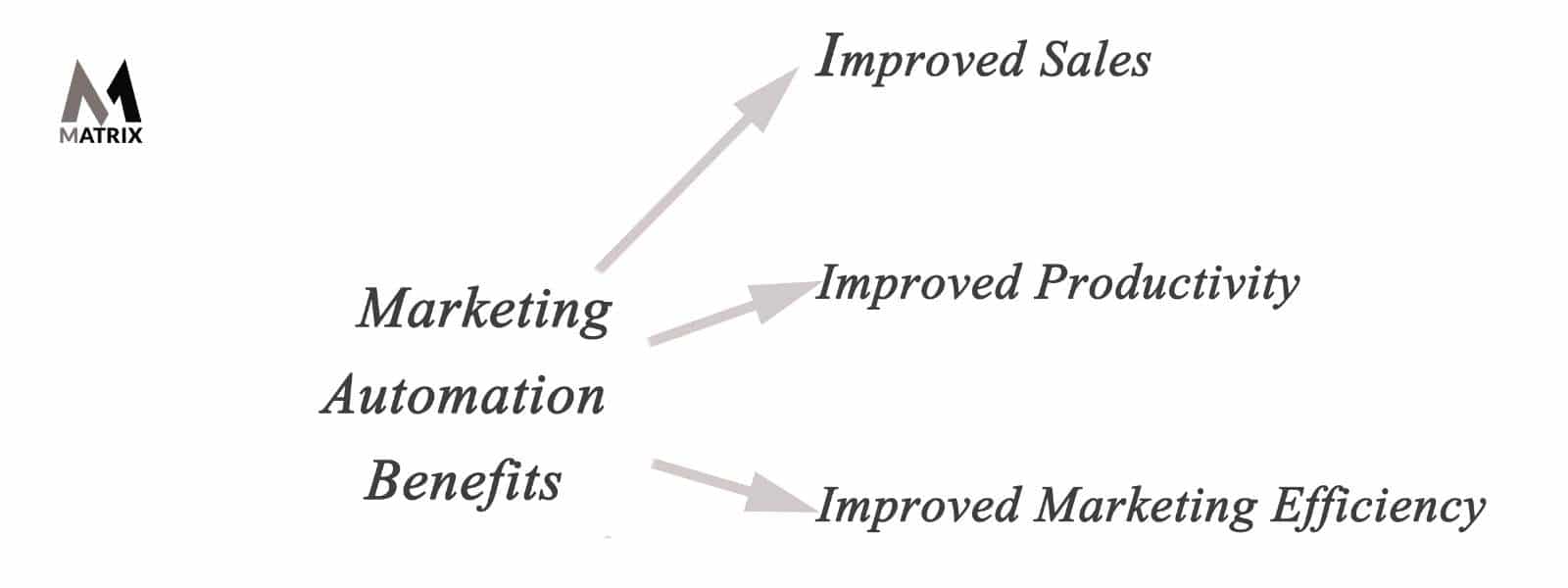Why Do Marketing Automation Platforms Failure and Churn Happens?
Marketing automation platforms failures happen for all sorts of reasons and we convert them all. Okay, a lot for you to start thinking about setting up and implementing any platform.
Marketing automation is a complex process that can be difficult to implement.
Implementing marketing automation requires time and effort from many departments within an organization, which can be challenging for organizations with limited resources or staff members with specialized skillsets.
The success of an organization’s marketing efforts is complex, requiring employees to fully understand how each role contributes to its goals and roles within the organization.
Marketing automation can complicate this by adding a new technology that requires employees to learn how it works, which can be difficult in a short amount of time.
Implementing it successfully means understanding every part of its use from start to finish so campaigns can be set up correctly from the beginning rather than having to make changes halfway through after they have already begun running.
Resulting in too little time for organizations to implement successful campaigns before their marketing budget runs out, or they lose customers because of mistakes made during implementation with marketing automation software.
It is difficult to measure the ROI of marketing automation because many moving parts contribute to a company’s success when implementing marketing automation, which can lead to issues with implementation if it is difficult for employees within an organization to understand the ROI of marketing automation or how each role contributes to a company’s goals.
Let’s dive into the reasons why marketing automation fails and sometimes to fail is to learn.
Marketing automation platforms failure and what to avoid

- Marketing automation is a simple process.
- It’s difficult to measure the ROI of marketing automation.
- There are many moving parts in marketing automation, which can lead to issues with the implementation.
- Implementing marketing automation requires time and effort.
- An organization may not have the budget necessary for implementing marketing automation successfully.
- Organizations often underestimate the amount of time it takes to implement successful marketing campaigns through automated processes.
- There are low barriers to entry for marketing automation, which may result in many organizations trying to implement marketing automation within their company without first developing a plan or setting goals.
- Organizations often try to implement too much of the available tools within paid software at once before even testing one campaign, ultimately resulting in their campaign failing due to budget constraints or lack of staffing
- Implementing should be done incrementally so changes can be made as needed. This allows for mistakes and issues with implementation, not causing total failure of planned campaigns set up through marketing automation platforms.
- The success of an organization’s marketing efforts is complex, requiring employees to fully understand how each role contributes to its goals and roles within the organization. Marketing automation can complicate this by adding a new technology that requires employees to learn how it works, which can be difficult in a short amount of time.
Marketing automation implementations are often seen as a silver bullet for all of a company’s marketing needs.
However, this is not the case, and 60% of all marketing automation implementations fail. There are several reasons for this, including the following:
- Lack of a clear business need or goal.
- Purchasing software before you solidified your idea and goals
- Lack of governance or standards.
- Lack of training or inadequate training.
- Defining the automation solution too narrowly.
- Unrealistic expectations about what marketing automation can do.
- Implementation teams that are not fully dedicated to the project.
- Poorly designed processes or lack of processes altogether.
- Lack of integration with other systems, including CRM and other relevant technology cause marketing automation platforms failure.
- Lack of understanding or agreement about what needs to be done in the automation projects, end-to-end, from planning through execution and reporting.
- Inadequate staffing or resourcing levels during implementation and post-go-live phases.
- Assuming marketing automation is easy often cause marketing automation platforms failure..
- Using marketing automation as a glorified email marketing tool.
- Only doing manual marketing.
- Implementing too early without company-wide alignment.
- Automating a bad process or having no process.
- Implementing marketing automation in a silo.
- Not setting up your marketing automation properly.
- Not building up your team of experts can cause marketing automation platforms failure.
The failure of over 60% of marketing automation implementations fails because companies are spending significant amounts of money on these implementations but not getting the results they need out of their automated tools.
However, this does not mean that marketing automation should be avoided altogether; it just means that there are many factors to consider before simply diving into implementation without first doing some research. So do your research and audit your processes.

1. Lack of a clear business need or goal.
It is important to have a clear understanding of what marketing automation can do for your company before starting the implementation process.
One of the major reasons implementations fail is that companies are expecting one thing but end up getting something different fully understand their needs before moving forward with the implementation process.
2. Lack of governance or standards.
Many implementations fail because they lack corporate governance or some sort of standards to follow throughout the rollout and post-go-live phases.
These guidelines help teams develop processes more effectively, ultimately leading to better results after an implementation project.
3. Lack of training cause marketing automation platforms failure.
Another reason so many marketing automation implementations fail is that there isn’t enough training given to team members before the implementation starts.
“Lack of training or inadequate training.”
4. Defining “the solution too narrowly.”
Another reason why implementations fail is that companies tend to define their solutions too narrowly.
As a result, they are more likely to miss out on potential opportunities for growth that could have been gained through a more thorough analysis beforehand.
5. Unrealistic expectations about what marketing automation can do.
Many of these failures occur because companies have unrealistic expectations about what marketing automation can do for them, and by extension, their clients.
Implementations may initially experience some success with early adopters due to the novelty of being an early adopter. Still, only about 30% of people are interested in receiving marketing emails when it comes to the general public.
“Marketing automation is great if you have the resources to maintain it.”
6. Implementation teams that are not fully dedicated to the project.
One reason for failure is that implementation teams are not completely dedicated to their projects.
When team members are distracted by other duties, they are less likely to put in the kind of work needed during key stages of implementation.
7. Poorly designed processes or lack of processes altogether.
Another reason why these sorts of implementations fail is because companies don’t have clearly defined processes in place before they start implementing automated tools throughout their organization.
When companies don’t have processes in place, it can lead to a loss of productivity and even mistakes that clients could see.
8. Insufficient testing.
One of the most important things to consider is how well they will perform before actually putting them into use when it comes to automated tools.
When not enough time is dedicated to testing these types of solutions, there are more likely to be problems down the road during implementation or post-go-live phases.
9. Lack of account-specific needs in an automation solution.
Another reason why implementations fail is that companies try out products designed for another type of industry when their specific needs are different than other industries like retail, technology, and e-commerce. Be careful how marketing automation vendor uses omnichannel.
If companies are trying out automated tools without first understanding their specific needs, it can lead to a lack of adoption and other issues.
“If companies are trying out automated tools without first understanding their specific needs, it can lead to a lack of adoption as well as other issues.”
10. Inconsistent brand messaging throughout an organization.
Another reason why implementations fail is that there isn’t a single point of contact that oversees the entire implementation process and adopts the same goals across all departments.
Companies that do not take the necessary time to build brand consistency tend to struggle with marketing automation due to potential miscommunication between teams.
An organization may not have the budget necessary for implementing marketing automation because they underestimate the cost, do not know how much money it will take to implement successfully, or they may not realize that there are additional costs associated with implementing because of things like:
- Training: Marketing automation takes time and effort from employees throughout an organization. Employees need training on using certain systems and understanding how those systems contribute to a company’s success.
- Outreach: Marketing automation can amplify the effectiveness of a marketing team, but only if they have the resources necessary to be successful with it. This requires employees from many departments in an organization to implement successfully.
- Customer support: A marketing automation platform will not automatically respond to customers properly if it is set up incorrectly or does not have sufficient customer support available when issues arise
- Employee management: Employees need specific roles and responsibilities for a company to succeed, which may change with implementing marketing automation because new skillsets are needed for different positions within an organization or due to changes within a role that employees did not expect when implementing marketing automation with their current responsibilities.
- Infrastructure costs: Depending on how and where data is stored, implementing marketing automation can require organizations to purchase new hardware or software. Slow servers and hosting cause marketing automation platforms failure.
- Maintenance: Marketing automation takes time and money over the long term. Depending on how an organization implements it, they may need to update their platforms periodically or make sure that developers are available whenever issues arise within the platform can cause marketing automation platforms failure.
Marketing Automation fails because of problems with implementation. These can be avoided by making incremental changes as needed rather than all at once, allowing for mistakes and issues during implementation without causing total failure of planned campaigns.
It is best to implement in a way that allows for constant feedback from employees throughout an organization, so plans do not have to change based on a lack of resources or budget employees were not able to communicate how implementing marketing automation will benefit their organization or what aspects of it they need to be successful.
The best way to implement is gradual, allowing for training throughout the process without initially expecting too much from employees.
Organizations can use resources like social media and communities online to communicate with other marketers to obtain feedback on how best to implement marketing automation successfully within an organization.
Marketing automation fails because companies do not know when enough is enough when implementing new software.
Many moving parts contribute to a company’s success when implementing marketing automation, which can lead organizations looking at implementation in general down roads where they cannot make changes if there are problems along the way.
Organizations must understand that one size does not fit all in marketing automation. It will take time to make the correct changes to implement marketing automation for an organization successfully.
Marketing automation is a powerful tool that can help businesses increase their efficiency and productivity. However, if it’s not implemented correctly, it can cause more harm than good.
Conclusion about causes marketing automation platforms failure.

You’ve heard a lot about marketing automation and how it can help your business, but you’re unsure where to start. Marketing automation software implementations fail because of a lack of planning.
You’re now ready to implement marketing automation into your business and are looking for some advice on doing it correctly. This approach can reduce a marketing automation platforms failure.
Implementing marketing automation can be a daunting task, but don’t worry – we’re here to help! In this post, we explored some of the reasons why marketing automation implementations often go wrong and how to avoid them.
Marketing automation is a powerful tool to help businesses increase their efficiency and productivity.
However, if it’s not implemented correctly, it can cause more harm than good.
=> One way to prevent these mistakes from happening is by making incremental changes as needed rather than all at once so you don’t have to make significant adjustments in your strategy when problems arise on implementation day or before an anticipated launch date for new campaigns which could lead to wasted time and money on both parts.
The best way to implement is gradually allowing employees involved with an organization who will be using Marketing Automation tools over the long-term enough time.
How Matrix Marketing Group can help with HubSpot implementation.
Matrix Marketing Group is a HubSpot Certified Partner, and we know how to help businesses implement HubSpot successfully and steps for success.
We have a team of experienced professionals to help you plan, design, and execute a successful marketing automation implementation.
If you’re ready to get started, contact us today! We would be happy to answer any questions you have and help you get started on the path to success.

General FAQs about marketing automation platforms failure.
Is HubSpot CRM implementation hard?
No, not at all. It is up to you how you want to implement CRM. If you do not know anything about the system, it would be better if your company hires a digital HubSpot partner agency like Matrix Marketing Group for your HubSpot implementation with some experience in your industry.
Why would I choose a HubSpot partner?
Like Matrix Marketing Group with 20 years of experience, a HubSpot partner can help you plan, design, and execute a successful marketing automation implementation. They’ll have the knowledge and expertise you need to make the most of your investment in marketing automation and get the most out of your campaigns. Contact us today to learn more about our services!
What is the best way to prevent mistakes when implementing marketing automation software?
One way to prevent these mistakes from happening is by making incremental changes as needed rather than all at once so you don’t have to make significant adjustments in your strategy when problems arise on implementation day or before an anticipated launch date for new campaigns, which could lead to wasted time and money on both parts.
How much does a Hubspot partner cost compared to a full-time in-house employee?
A HubSpot expert might cost about one-third of the price of an in-house worker. This will vary depending on what type of marketing automation services you need, such as implementation and training for your company. If you’re looking to work with Matrix Marketing Group’s HubSpot consultants, we would be happy to provide more information and answer questions. Please reach out or contact us today!

